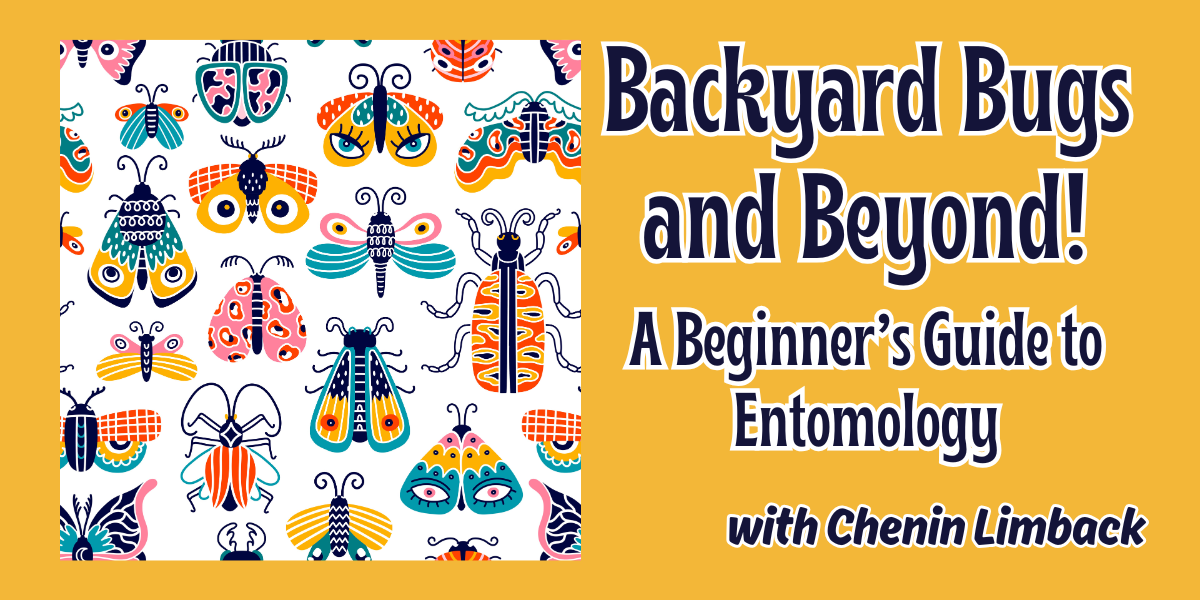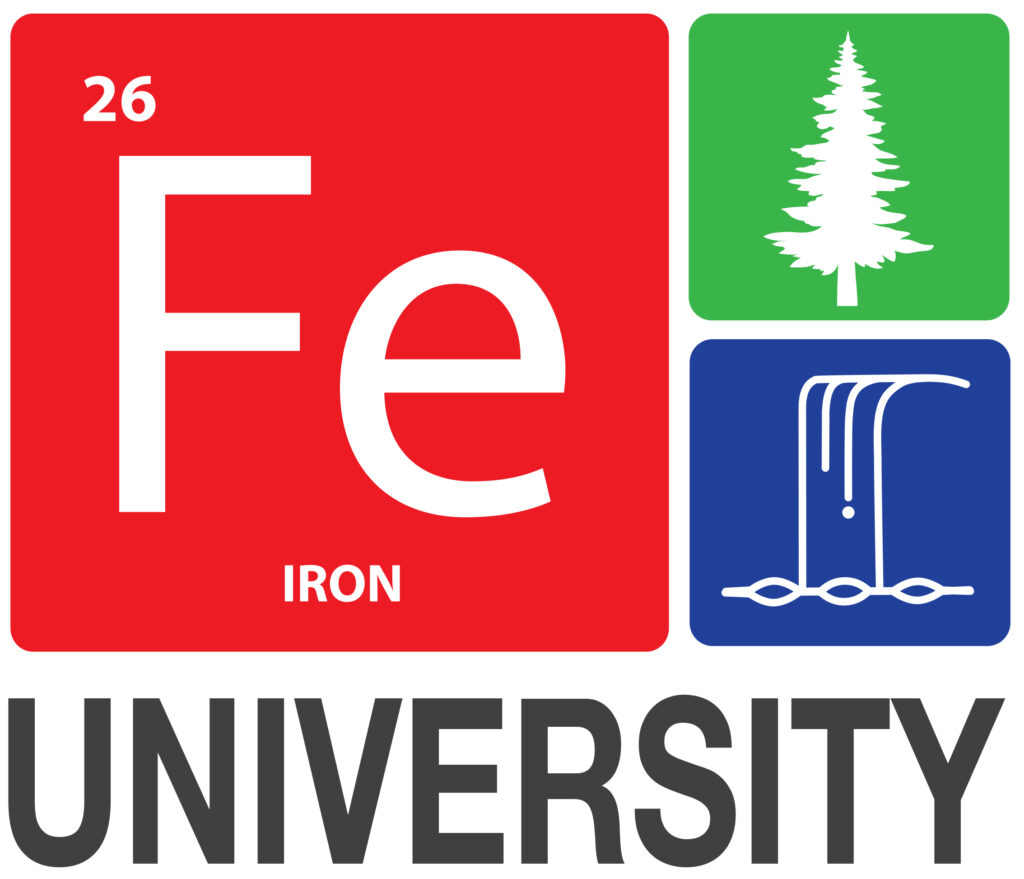
- This class has passed.
Backyard Bugs and Beyond! A Beginner’s Guide to Entomology
May 15 @ 10:00 am - 12:00 pm
$40.00 – $45.00
This course will take place on Thursdays, May 15, 22, and 29, 10:00 a.m.-noon at Gogebic Community College, and Tuesday, May 27, 1:00-4:00 p.m.at Norrie Park, with Chenin Limback.
This course offers a hands-on, eye-opening introduction to the incredible world of insects, spiders, and other backyard invertebrates. Students will gain a foundational understanding of entomology and explore the significance of insects in both local environments and global ecosystems. From insect taxonomy and anatomy to evolution and ecology, students will develop an appreciation for the roles these organisms play as pests, pollinators, and predators in our natural environments.
Course structure:
Section 1: Entomology Basics
- What is an insect?
- Insect anatomy
- The groups of insects
- Insect ecology
Get to know physical attributes of insects and what makes them similar to – and different from – other invertebrate organisms. Learn how their specialized structures and body parts have helped insects evolve, adapt to, and function in diverse natural environments. Discover the major taxonomic groups of insects, their key features, and the important roles they play in ecosystems.
Section 2: Pests and Harmful Insects
- Invasive species
- Agricultural pests
- Vectors of disease
Explore the ways certain insects can negatively affect our lives – from invasive species that disrupt our ecosystems, to agricultural pests that impact food systems and economies, to disease vectors with public health consequences. and vectors of disease impacting healthcare. We’ll focus on local examples such as the emerald ash borer and multicolored Asian lady beetle, while also discussing broader global impacts and potential solutions.
Field Trip: Observing and Collecting Local Insects
- Observing insects in our local area
- Insect collection and preservation basics
Head outside on a guided visit to Norrie Park to observe insects in their natural habitats! We’ll practice hands-on techniques like sweep netting and aquatic netting to get a closer look at these fascinating species. Interested participants will also have the option to learn basic collection and preservation methods, including how to pin and store specimens for a personal collection.
Section 3: Beneficial Insects and Spiders
- Field trip reflection and insect identification
- Pollinators and ecosystem engineers
- Spiders and other invertebrate predators
Wrap up the course by reflecting on our field experiences and practicing insect identification using keys and guides. We’ll then explore the many ways insects benefit ecosystems and humans – from pollination and decomposition to natural pest control. Finally, we’ll highlight the roles of spiders and other predatory invertebrates, dispel common misconceptions, and (for those interested), enjoy a tour of Dr. Limback’s live tarantula collection.
Requirements: This course is designed for adult learners who are interested in exploring the fascinating world of insects and invertebrates. No prior knowledge of entomology is required, though students should have a general curiosity about nature and the environment, as well as an openness to getting up close and personal with insects and spiders (within reason)! The course will also include hands-on learning through a field trip and observational exercises.
No formal textbook is required for this course. However, participants may find it helpful to bring a notebook for taking notes during lectures and the field trip. Basic materials for the field trip (e.g., insect nets, containers) will be provided, but participants are encouraged to bring a hat, sunscreen, and appropriate outdoor clothing. Students should bring a water bottle and, if desired, snacks for the trip. Field trip activities will involve some walking, terrestrial sweep netting, and aquatic netting, which can involve light to moderate physical activity based on participant preference. Individuals who own waders may wish to bring them for aquatic collection purposes (optional), though waders of various sizes are also available from the instructor.
Materials Required: There will be no formal homework, but participants will be encouraged to observe and record any insects they encounter between sessions and on the field trip. Student are also welcome to take collection materials home and bring specimens of interest to share with the class (basic collecting supplies can be lent to the student upon request). Optional readings and online resources will be suggested for those who wish to deepen their knowledge of specific topics. Handouts will be provided by the instructor.
This class is limited to 12 students.
Register by May 1 to get a $5 Early Bird discount off the regular registration price of $45!
Instructor: Chenin Limback
Offline Registration: Download PDF Registration Form, complete and mail in with payment.
Registration Questions? Contact us or call (715) 862-2032 or (715) 476-2881.
Registration Issues/Troubleshooting: If you are registering with one email address for two or more people, please register each person individually (i.e. do not register all at once, but add students one at a time to checkout). If you continue to have difficulty or have another question, please contact us.
Course Cancellations: Students are encouraged to register at least 2 weeks before the beginning of any Fe University course. A course with less than 4 students 2 weeks before the start date may be cancelled at instructor/FeU discretion, with students’ registrations refunded. If you’re interested in a class, please sign up early! Thank you.
Student Cancellations: If a registered student cancels, registration can be refunded if requested 4 or more days before the course’s start date. We’re afraid cancellation requests made 3 or fewer days before the course’s start date are unable to be refunded.
